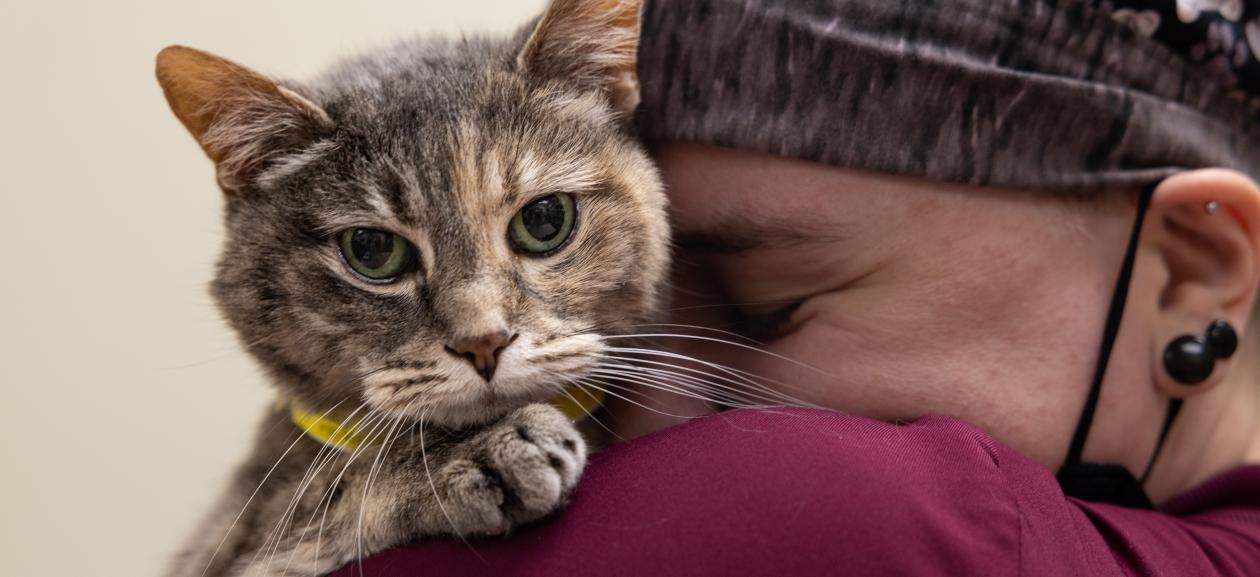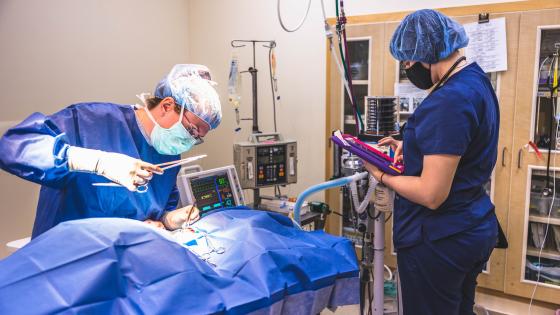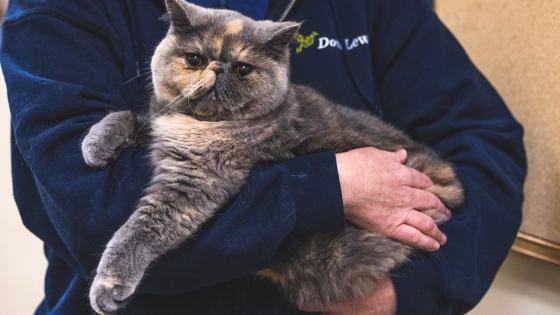
Caring for Pets with Cancer: Tips for Comfort and Quality of Life
A cancer diagnosis can bring many questions and worries, and it’s natural to wonder how to help your pet feel their best. While treatments like surgery, chemotherapy, or other therapies are important, the care you provide at home plays a huge role in keeping your pet comfortable, happy, and engaged every day.
Prioritize Comfort and Pain Management
Pets with cancer may experience discomfort, stiffness, or fatigue that affects daily life. Your veterinarian or veterinary oncologist can create a personalized plan to manage pain safely, using medications, rehabilitation therapies, or supportive interventions. Small adjustments and attentive care can make a big difference in keeping your pet comfortable and enjoying life.
Maintain a Consistent Routine
Pets thrive on routine. Regular feeding times, walks, and play sessions help reduce stress and give your pet a sense of security. Gentle modifications may be needed if your pet tires more easily or experiences mobility changes due to their condition or treatment—but keeping familiar routines can provide reassurance and stability.
Support Nutrition and Hydration
Cancer and its treatments can affect appetite and energy. Offering small, frequent meals of high-quality, palatable foods can encourage eating, and making sure your pet stays hydrated is equally important. If your pet struggles to drink enough, your veterinary team can guide you on safe supplemental options, like subcutaneous fluids. Working together ensures your pet’s nutritional and hydration needs are met throughout treatment.
Provide a Comfortable Resting Space
Soft bedding, warm blankets, and easy access to favorite spots can greatly improve comfort. For pets with mobility challenges, ramps, non-slip surfaces, or elevated beds can make moving around easier and safer.
Gentle Exercise and Mental Stimulation
Even light activity—short walks, gentle play, or indoor enrichment—helps maintain muscle strength and mental engagement. Rehabilitation and pain management services, such as acupuncture, laser therapy, and physical therapy, can support mobility and comfort, especially for pets recovering from surgery or coping with stiffness or weakness. These therapies should always be recommended by your veterinarian or veterinary oncologist to ensure they are safe and appropriate for your pet’s specific condition.
Monitor Changes Closely
Pay attention to your pet’s behavior, appetite, weight, and energy levels. Any new lumps, swelling, changes in appetite, energy, or behavior should be reported promptly. A quick evaluation can help manage complications early and maintain your pet’s quality of life.
Emotional Support Matters
Cancer affects the whole family. Spending quality time with your pet—along with seeking guidance from support groups, counseling, or your veterinary team—can help you navigate the emotional challenges while ensuring your pet feels loved and cared for.
Collaborate with Your Veterinary Team
Veterinary oncology teams work closely with families to create individualized care plans that prioritize comfort, quality of life, and your pet’s unique needs. From treatment decisions to symptom management and supportive therapies, your veterinary team helps your pet live as fully and comfortably as possible.
Caring for a pet with cancer is about balancing medical treatment with everyday comfort, attention, and love. By observing your pet, making thoughtful adjustments at home, and partnering with your veterinary team, you can help every day count—and give your pet the best possible quality of life.



